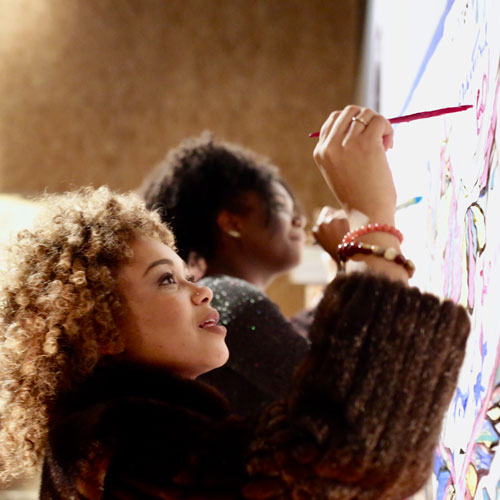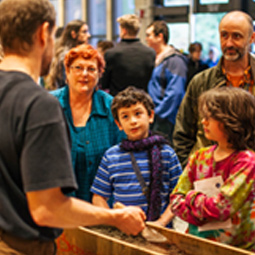In July 2015, UCUT purchased six old growth cedar logs—some up to 800 years old, 40-feet long, and 28,000 pounds—and donated them to the Colville, Spokane, Coeur d'Alene, Kalispel, and Kootenai tribes in Washington and Idaho to be carved.
The tribes carved shovelnose canoes, dugout canoes with a flat base and horizontal prow and stern extending from the gunwales. Shovelnose canoes were once commonly paddled along the Columbia River for transportation, but few have been made since the mid-19th century due to the construction of dams and the loss of traditional gathering sites among other reasons.
The Burke Museum’s Bill Holm Center for the Study of Northwest Native Art awarded a grant to UCUT for their work to help complete the final months of the canoe preparation in time for the journey and celebration. In addition, several Burke Museum staff members were involved in carving portions of the Kalispel canoe.
The historic project led to the revitalization of this style of canoe within the Plateau communities and culminated with a canoe journey to Kettle Falls, an ancient fishing site on the Columbia River. Hundreds of people gathered for the Colville Tribe’s Salmon Ceremony on June 18, 2016.
It is estimated that this was the first time in eighty years that the tribes had gathered together by canoe at Kettle Falls. The gathering advocated for salmon passage on the Upper Columbia River, environmental awareness, and the revitalization of the traditional and ancestral dugout canoe culture in the region.






